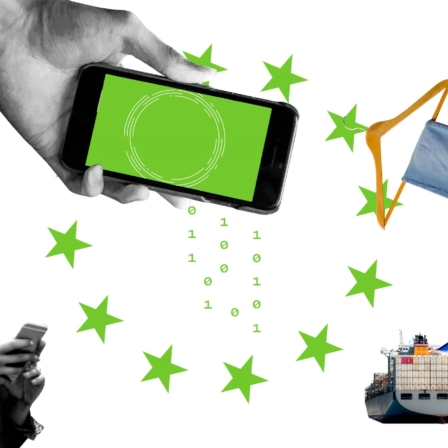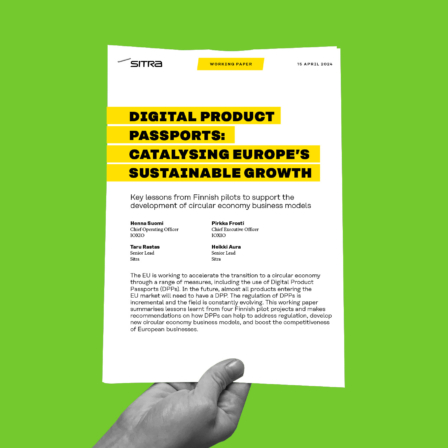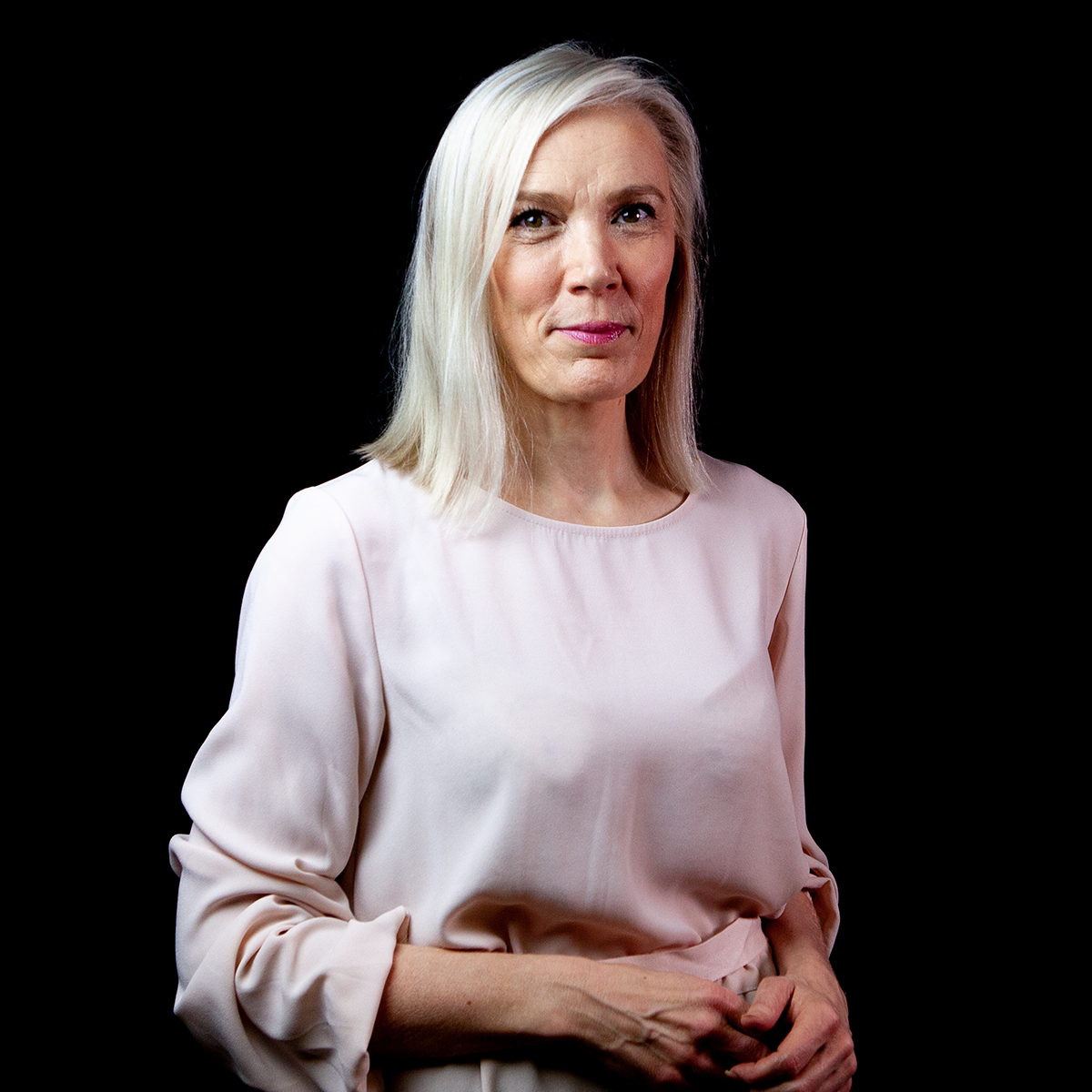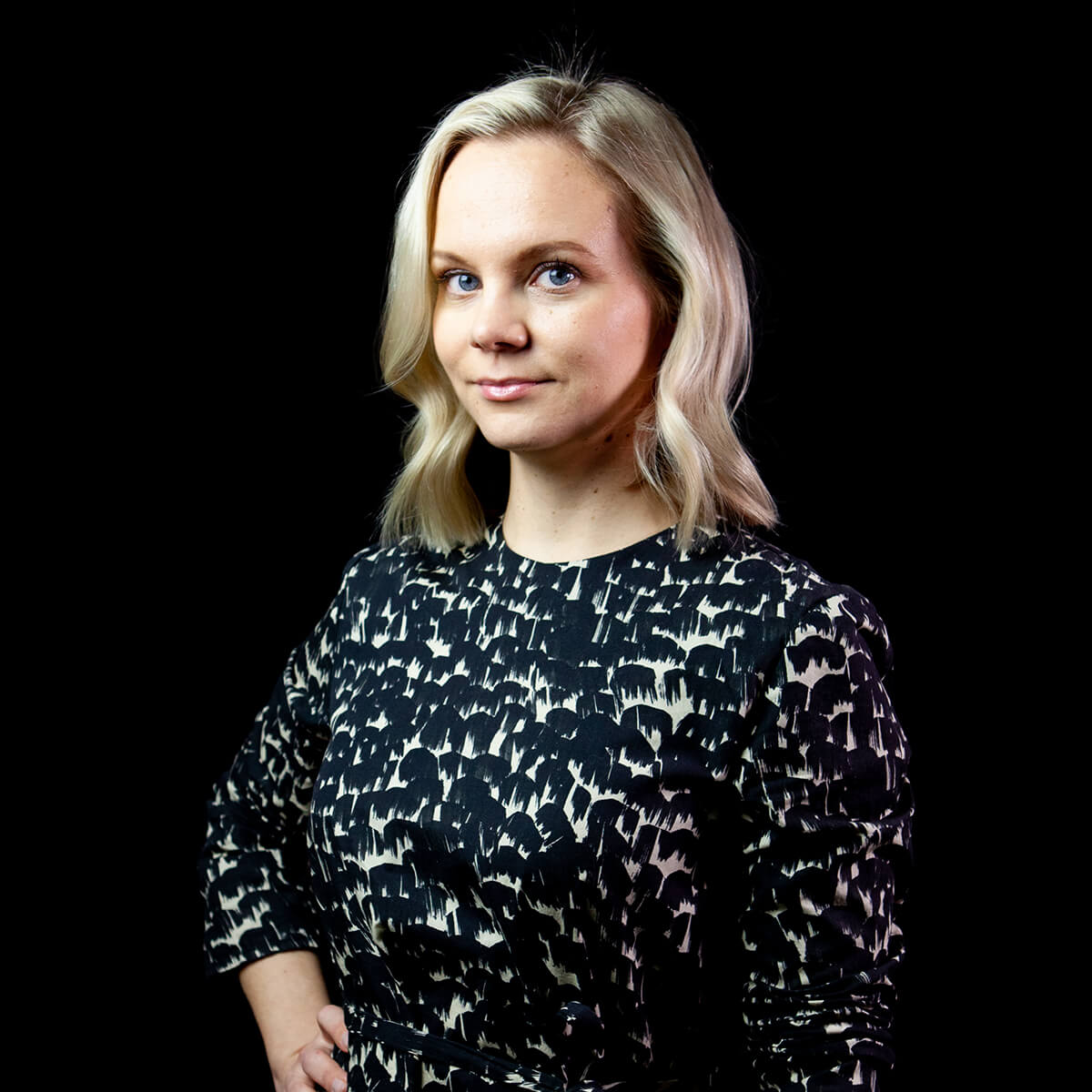Digital product passports
Digital Product Passports are a way of bringing together data on product sustainability, raw materials, materials and safety. They inform consumers in a transparent way, promote responsible business and can accelerate the transition to a circular economy. Sitra funded several digital product passport pilot projects.
What is it about?
The climate crisis, dwindling natural resources and biodiversity and population growth are testing the planet’s carrying capacity. We need smarter economic policies that do not stop consumption, but make the way we consume sustainable.
Sustainable business and the circular economy will be boosted by the better use and sharing of data in the manufacturing chain and throughout the life cycle of products.
The Digital Product Passport can be thought of as a digital version of a physical object, providing accurate and reliable information about the product throughout its manufacturing and distribution history. Access to the information provided by the Digital Product Passport must be available through a digitally readable identifier.
Comprehensive product information can improve business productivity, resource efficiency and product traceability in the manufacturing and distribution chain. It can also extend the life cycle of products by facilitating their maintenance, repair and refurbishment.
Data is also needed at the end of a product’s life cycle to support the safe recovery and reuse of materials. Providing product information to customers and supply chain actors enables them to make sustainable consumption and partner choices.
Digital Product Passports are one way to improve product traceability and the transparency of information provided to consumers. They can collate data on product sustainability, raw materials, materials and safety. They improve the usability of product information, promote responsible business and more sustainable production methods and can accelerate the transition to a circular economy.
The European Commission wants to accelerate the digital and green transition, and product passports are one way to do this. In the coming years, EU legislation will define data requirements for digital product information. The Commission has called for solutions from different sectors to develop a digital passport, particularly for textiles, batteries and electronic equipment.
The digital and green transitions are not self-evidently linked. We therefore need to ensure that the data economy is used to support the green transition. Digital Product Passport solutions offer opportunities for business development and the development of consumer services based on product information.
The implementation and deployment of digital passports will require collaboration, experimentation and piloting by many stakeholders. Experimentation needs to start at the beginning of the value chain and continue step by step, involving all parties in the chain. For example, it makes sense to start with information on a product’s raw materials, manufacturing history or transport emissions, and then expand to solutions to cover the entire value chain.
Based on the results of the pilot solutions, a dialogue between regulators and industry is needed to ensure that the product passport model is truly future-proof and that regulatory requirements take into account the capacity of businesses for change and to manage data, transfer product information across organisational boundaries and use interoperable data models.
What do we do?
Sitra actively supports the experimentation and piloting of digital product passports and launched in 2023 pilots to develop the passport concept and to explore business solutions. Sitra provides the results of the pilots and lessons learned for the development of future EU regulatory requirements.
The first pilots looked at value chains for battery and textile products and logistics.
On going pilot projects
CIRPASS2 – Recycling of workwear
A Finnish pilot project as part of European product passport development
The CIRPASS2 project, funded by the European Commission’s Digital Europe Programme, involves 13 European pilot projects from the textile, electrical and electronic equipment, and construction materials industries.
The Finnish pilot is developing a data-driven solution for the maintenance and recycling of workwear. The project will experiment, in practice, with the application of digital product passports on a large scale. The project will also build a collaborative network that will facilitate the adoption of product passports. For Finland, the project collaboration will provide insights into EU-level development and lessons learned, as well as an opportunity to strengthen capabilities.
The aim of the pilot is to create practical solutions for implementing product passports in companies. The project also aims to highlight the changes brought about by the Ecodesign for Sustainable Products Regulation (ESPR), which companies and other stakeholders should proactively address. The project also seeks to influence the development of the EU product passports by conveying the perspectives of Finnish companies and opening up paths for Finnish solutions globally and in the EU single market.
Partners: The main partners of the Finnish consortium are the Finnish Textile and Fashion Association and Ioxio. Several Finnish textile companies are involved as well, and Sitra and VTT are partners in the project. The EU project is led by the French CEA-List research organisation.
Finnpass, a cooperation project between Finnish product passport operators
The Finnpass cooperation project brings together Finnish product passport stakeholders to share information and lessons learned, to build capacity to support the implementation of product passports and to promote product passport trials and development.
The aim is to highlight the changes that digital product passports bring and which companies and other actors should proactively address and seek to influence. The project also aims to influence the digital product passport development in the EU by gathering Finnish perspectives and lessons and offering them to European development and pilot projects.
The project is ongoing and will end in early 2025.
Partners: VTT
Completed pilot projects
Aggregating logistics emissions data into a product passport
Sitra funded an experiment to pilot the measurement, dissemination and registration of logistics emissions data in transport chains. The aim of the pilot was to find out how emissions data can be circulated along the transport chain and all the way to the end consumer. The Digital Product Passport will enable consumers to obtain information on the carbon footprint of the product during transport.
The Digital Product Passport can help to facilitate progress towards zero emissions transport solutions. If companies can offer their customers a product that has been transported with zero emissions, they may be able to improve their competitiveness. Based on the results of the pilot, the aim is to develop a business model and architecture that can facilitate the emergence and large-scale deployment of a digital product passport model for logistics emissions data.
The project has been completed.
Partners: PBI Research Institute Oy Ab (project leader), Ioxio Oy, SSAB Oyj, Orkla Oyj.
Digital Product Passport for the textile industry
Sitra funded a pilot project to see how a single textile operator, Halti, a manufacturer of outdoor clothing, can benefit from the product passport and how it can be developed. The pilot aimed to create an understanding of the digital capabilities and financial investments required to implement a digital product passport.
The digital product passport for the textile industry is mentioned in the EU’s vision for sustainable and circular textiles. The pilot aimed to provide input to the evolving EU regulatory framework by describing concrete use cases that can be implemented with existing data and identifying challenges that may affect a wide range of textile companies.
The results of the pilot project (PDF in Finnish) have been used in an open Circular Design for Business online course offered by Design Forum Finland.
Partners: Halti, Finnish Textile & Fashion Association, Futurice
Blockchains as a decentralised infrastructure for the digital product passport
The project explored the use of blockchain as a decentralised infrastructure for product passports in the textile industry. The solution was linked to existing legislation, a common market database solution, common industry policy for data processing and sharing, and the monitoring of the readiness for the implementation of the single border value chain product passport.
Partners: Struggle Creative Ltd.
Industry will boost its competitiveness by preparing for the green transition with Digital Product Passports
Sitra funded a pilot project to develop a digital battery passport to improve the transparency of the battery life cycle of mobile machinery. With the EU Data Act, the Battery Passport Directive, which will enter into force in 2024, will make the battery passport mandatory. The information provided by the passport will help to improve the recycling and reuse of batteries.
The passport, which will bring together information on the identity of batteries, will combine information on the use of machinery with information on the battery’s life cycle, so that the information is as useful as possible for a wide range of stakeholders, such as machinery operators, industrial customers and public authorities, for example when assessing emissions from machinery and production chains.
The project was implemented through an industrial data space, which will serve as a testbed for the experiment. The experiment is a concrete example of how the battery passport can be implemented and how the information it provides can help industrial operators calculate and reduce emissions.
The project ended in February 2024.
Partners: The SIX Mobile Work Machines consortium consists of leading Nordic mobile machinery manufacturers: Sandvik, Kalmar, Valtra, Ponsse, Junttan, Valmet Automotive and Nokia. Kalmar and Sandvik are the main partners in the battery-powered car trial.



